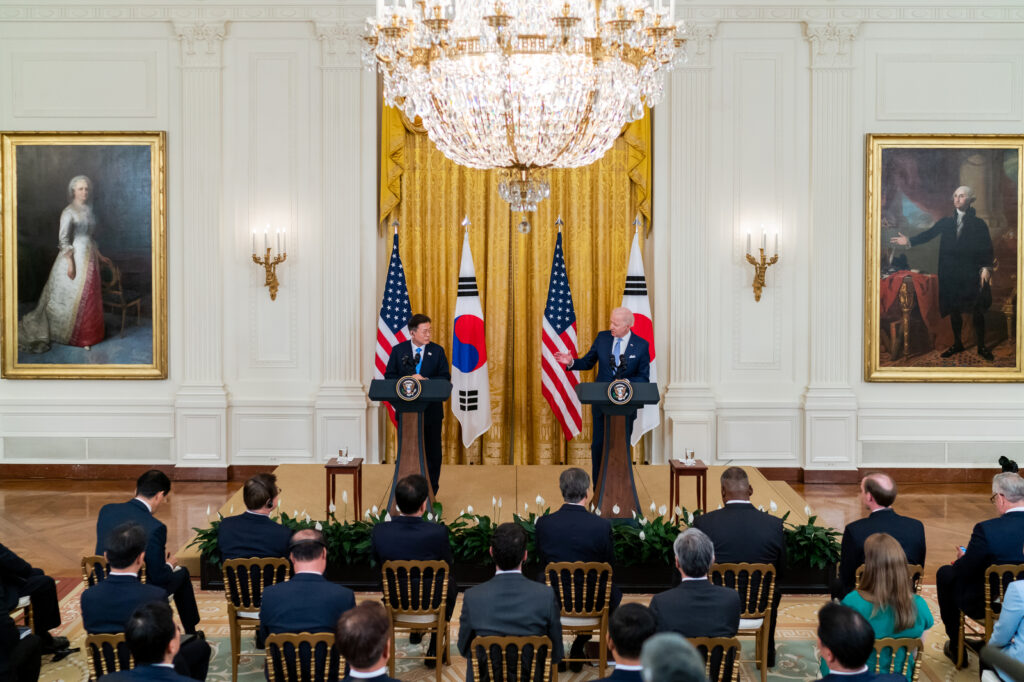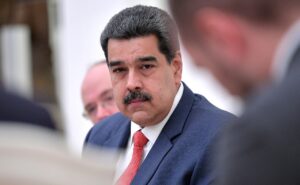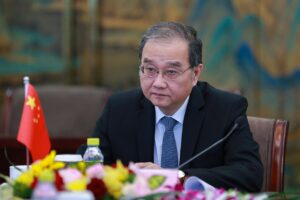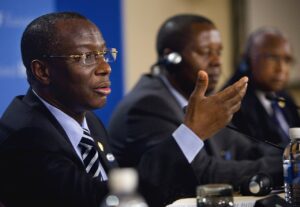After concluding a policy review for the Democratic People’s Republic of Korea (DPRK or North Korea), the Biden administration announced that it would take a “calibrated, practical approach” to address threats from North Korea. While the exact meaning of this was unclear, it suggested the administration would pursue a more realistic approach to achieving progress on the denuclearization of the DPRK. During a joint session of Congress marking his first 100 days in office, President Biden said that issues related to North Korea would be addressed via “diplomacy and stern deterrence.”
While the Trump administration essentially pursued “everything” and Obama’s pursued “nothing,” it appears that the Biden administration is open to exploring “something in the middle,” seemingly in the form of phased negotiations. As such, it appears that Biden’s administration prefers and is open to working-level talks between Washington and Pyongyang within this framework. Once talks begin, the Biden administration might apply some elements of the Iran deal to future talks with North Korea where the U.S. could offer some sanctions relief in exchange for the DPRK’s gradual reduction of its nuclear weapons. In this scenario, the first step would be to freeze Pyongyang’s nuclear program and then push for denuclearization.
The Past Informs the Present
President Biden’s North Korea policy appears to be guided by the lessons of the past. The history of negotiations with Pyongyang over its nuclear weapons program has been fraught with numerous obstacles, making Washington and Seoul’s shared goal of completely denuclearizing North Korea difficult to achieve. In light of this history, the Biden administration has adopted a more realistic approach, by which it will attempt to produce concrete outcomes through reaching a small deal that both the U.S. and North Korea find acceptable.
At the May 2021 summit between the U.S. and the Republic of Korea (ROK), Presidents Biden and Moon strove to create momentum for resuming US-US-DPRK talks. The two countries issued a joint statement that showed support for the Panmunjom Declaration, the agreement that came out of the first inter-Korean summit in 2018. In the Biden-Moon joint statement, President Biden also expressed his support for continued dialogue, engagement, and cooperation between the two Koreas. The contents of the Panmunjom Declaration (including such shared goals as realizing a nuclear-free Korean Peninsula, ceasing all acts of hostility against one another, and improving inter-Korean cooperation) are all aimed at salvaging the inter-Korean relationship. It is vital to US-DPRK negotiations progressing as well because it includes the basis for formally declaring the end of the Korean War. If the Biden administration issues this declaration, it could be the first step toward dismantling what the DPRK considers the U.S.’s hostile policies toward the North.
The US-US-ROK joint statement also acknowledged the importance of the Singapore Statement, which was issued after the first US-DPRK summit in 2018. However, this statement provided only principles, not agreements on vital issues or specific goals. For instance, no definitions were included as to what was meant by “new US-DPRK relations” or the “complete denuclearization of the Korean Peninsula.” Even now, it remains unclear what the U.S. is willing to offer after restarting negotiations with the DPRK.
Current Limitations
A closer look reveals that Biden’s DPRK policy is tilting toward “management through deterrence.”Currently, the U.S. is focused on reviving its middle class, domestic, social, and economic situations, resolving the Ukraine situation, and dealing with China, all of which are seemingly pushing North Korea lower down the list of U.S. foreign policy priorities. In the meantime, Washington has repeatedly announced it is willing to talk with the DPRK without preconditions at any time, putting the onus for re-engaging on North Korea.
Pyongyang, on the other hand, has insisted that it will not engage in dialogue unless Washington abandons its hostile policies toward the North.1Translation of “우리 식 사회주의건설을 새 승리에로 인도하는 위대한 투쟁강령조선로동당 제8차대회에서 하신 경애하는 김정은 동지의 보고에 대하여,” Rodong Sinmun, January 9, 2021. This does not bode well for negotiations to resume, as Washington seems unwilling to change course before returning to talks or make the kind of moves that would signal a lowering of hostilities, such as suspending US-ROK joint military exercises or withdrawing U.S. strategic assets deployed in the region. As a matter of fact, keeping the US-ROK alliance strong is more important to the Biden administration than pursuing denuclearization of the DPRK. Dropping these so-called hostile policies toward the North could eventually weaken the U.S. military’s presence in South Korea and impact the US-ROK alliance.
Furthermore, since North Korea ranks low on Biden’s list of priorities, the U.S. has little incentive to give in to the DPRK’s demands. Keeping China in check tops the Biden administration’s foreign policy priority list, and the US-ROK alliance serves as an indispensable source of leverage for reigning in China. The Biden administration alluded to the Panmunjom Declaration and the Singapore Joint Statement in order to bring North Korea back to the negotiating table and avoid creating a fissure in the US-ROK alliance. Simply put, the Biden administration does not want DPRK issues to adversely affect the US-ROK alliance.
North Korea is fully aware that denuclearization negotiations with the United States will not proceed smoothly. When negotiations begin, the two countries will likely go through a protracted process of tedious working-level negotiations. U.S.Secretary of StateAntony Blinken and National Security Adviser Jake Sullivan were the key American players in the nuclear negotiations with Iran. Those talks had some distinctive characteristics: Iran agreed “to reduce its stockpile of low-enriched uranium” in exchange for receiving sanctions relief, and negotiators pursued a phased agreement. In other words, negotiators sought to freeze Tehran’s nuclear program in the first phase and work on denuclearization in the next phase. Following a year and a half of working-level talks, the 159-page Iran nuclear agreement was signed, where the parties managed to reach a first-phase agreement that contained extensive verification arrangements to reduce Iran’s inventory of enriched uranium.
In regard to North Korea, the question is whether the DPRK is willing to endure such a long and difficult process of working-level talks. It is also unclear whether the North will allow inspectors to enter the country and if it will comply with requirements, such as dismantling its nuclear facilities. In Tehran’s case, inspectors were allowed to enter the country for random inspections. It is unknown whether Pyongyang would agree to do the same.
Right now, the economic situation inside North Korea appears grim. Three years into the COVID-19 pandemic, the DPRK’s borders remain mostly closed, further exacerbating an already fragile economic situation in the country. Therefore, the North Korean regime has been largely focused inward on addressing the rapidly worsening situation within its borders. It has imposed harsh lockdown measures in an effort to block contact with the outside world, and although the opportunity to receive humanitarian and COVID-19 assistance and vaccines has been extended, the DPRK has not responded. The pandemic has ravaged North Korea’s economy, but on the other hand, it has provided the regime with some time and opportunities to tighten the state’s grip on its people and scramble to pick up the pieces.
Conclusion
Since North Korea knows that it is a lower priority for the Biden administration, it is not likely to be rushing back to negotiations anytime soon. Moreover, the DPRK values its relationship with China and is cognizant of Pyongyang’s strategic importance amid the ever-growing rivalry between Washington and Beijing. In this political environment, China is also paying more attention to maintaining a relationship with North Korea, valuing their strategic partnership more than denuclearizing the DPRK. In this political context, as witnessed after the second North Korean nuclear test in 2009, Chinese responses to DPRK military provocations are unlikely to be tough, making the prospects for more provocations very real for the foreseeable future.2After the U.S. and DPRK came up with February 13 agreement in 2007 through secret meetings, China’s DPRK policy changed. As a result, after North Korea’s second nuclear test in 2009, China prioritized its relationship with the DPRK rather than pressuring North Korea due to its nuclear test.
Notes
- 1Translation of “우리 식 사회주의건설을 새 승리에로 인도하는 위대한 투쟁강령조선로동당 제8차대회에서 하신 경애하는 김정은 동지의 보고에 대하여,” Rodong Sinmun, January 9, 2021.
- 2After the U.S. and DPRK came up with February 13 agreement in 2007 through secret meetings, China’s DPRK policy changed. As a result, after North Korea’s second nuclear test in 2009, China prioritized its relationship with the DPRK rather than pressuring North Korea due to its nuclear test.




